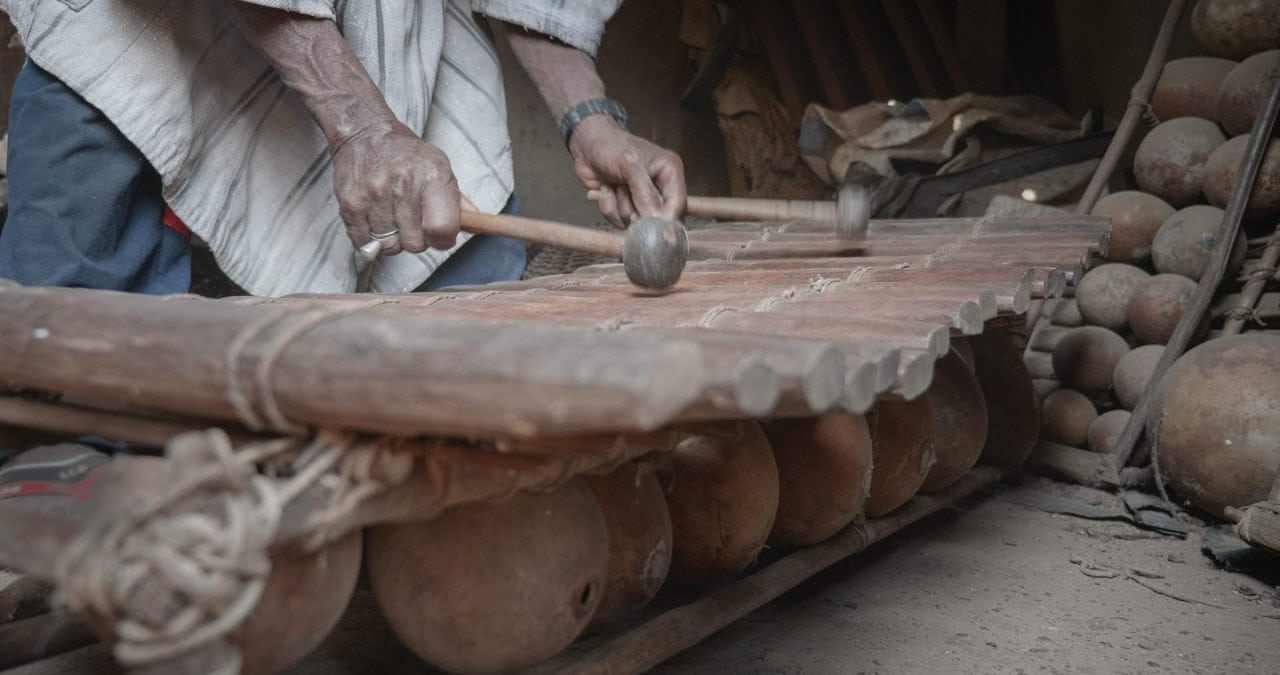The lost balafon of Samorogouan

Lacole Traoré tells the story of how a balafon typical of Guinea arrived in his village of Samorogouan, in Western Burkina Faso, and entered the history of his family. The story is one of circulation of musical knowledge and defies most accepted wisdom on griots and musical traditions in West Africa. This music is now about to disappear as Lacole and one relative remain the only two musicians able to play the Guinean balafon.
I have known Lacole since his elder brother Adama became my master hunter and teacher in donsoya. I knew he is a skilled balafon player from his performances with the Yere Majigi group and his stories of touring France and Belgium in the 1990s with Adama Dramé and other musicians from Burkina Faso. What I had not realised is that he does not simply play the pentatonic “Jula” balafon with which he accompanies the hunters’ harp, but he also plays a heptatonic balafon which is not normally found in traditional contexts outside of Guinea and Southern Mali. The story of how it arrived in Western Burkina Faso is fascinating and is connected to the history of his family. It was captured, along with a musician and two drums, during a war campaign in Guinea. The captured musician taught the music to the griots serving the village chief. Lacole’s family is related to the main griot lineage without being part of it, in a manner that defies conventional wisdom on griot endogamy. As a result of this relationship, some family members practised music for reasons of opportunity, whilst remaining distinct from the local griots. The practice of the Guinean balafon died out in those families, surviving instead among Lacole’s relatives.
Today Lacole has lost most reasons to play the balafon, as the villagers only request it during the annual village funerals. He is thinking of moving to Ivory Coast, where he has relatives and better opportunities to make a living. I put together this short documentary in order to preserve this history, in a way, and in the hope of attracting some researcher to do a proper study of histories, contexts and repertoires – perhaps giving Lacole a reason to remain in Samorogouan a little more.
